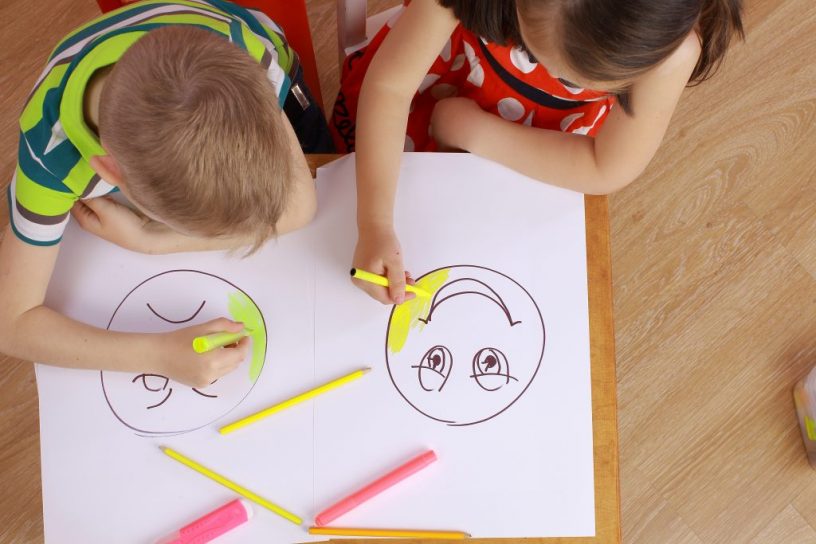Emotional regulation is a skill that allows us to manage and respond to our emotions in healthy and constructive ways. Whether it’s helping your child navigate big feelings or learning to manage your own emotions, developing emotional regulation skills is key to mental well-being. Here’s how you can support both your kids and yourself in this important journey.
Understanding Emotional Regulation
Emotional regulation involves recognizing, understanding, and managing our emotions. It’s about finding balance—not suppressing or ignoring feelings, but also not being overwhelmed by them. For kids, emotional regulation is something they gradually learn over time, often with guidance from adults. For adults, it’s a lifelong skill that can always be refined.
Why Emotional Regulation Matters
Effective emotional regulation helps us:
- Handle Stress: Navigate stressful situations without becoming overwhelmed.
- Build Resilience: Bounce back from setbacks more easily.
- Improve Relationships: Communicate more effectively and reduce conflicts.
- Enhance Mental Health: Lower the risk of anxiety, depression, and other mental health challenges.
Helping Your Child Emotionally Regulate
- Model Healthy Emotional Responses
- Children learn by observing adults. Show them how you manage your emotions by staying calm in challenging situations, talking about your feelings, and demonstrating healthy coping strategies.
- Teach Emotional Vocabulary
- Help your child name their feelings. Instead of just saying, “I’m mad,” encourage them to identify whether they’re feeling frustrated, disappointed, or hurt. This gives them the language to express themselves more accurately.
- Practice Deep Breathing
- Teach your child simple breathing exercises to calm their body and mind. A fun way to practice this is by pretending to blow up a balloon—taking a deep breath in and slowly exhaling as if filling up a balloon.
- Create a Calm-Down Space
- Designate a quiet area where your child can go when they feel overwhelmed. This space can include calming items like a favorite book, stuffed animal, or sensory toys.
- Use Storytelling
- Reading books that deal with emotions or creating stories together about characters facing similar feelings can help your child understand and manage their emotions.
- Set Routine and Structure
- Consistency helps children feel secure, making it easier for them to handle emotions. A predictable routine, especially during transitions like bedtime or after school, can minimize stress.
- Validate Their Feelings
- Let your child know it’s okay to feel upset, scared, or angry. Acknowledging their emotions without judgment helps them feel understood and teaches them that all feelings are valid.
Supporting Your Own Emotional Regulation
- Mindfulness and Meditation
- Regular mindfulness practice can increase your awareness of your emotions and help you stay present. Simple meditation exercises, even for a few minutes a day, can make a significant difference.
- Journaling
- Writing down your thoughts and feelings can help you process emotions. Use different journaling methods, like free writing, prompted journaling, or even doodling, to express what you’re feeling.
- Physical Activity
- Exercise is a powerful way to release pent-up emotions and reduce stress. Whether it’s a walk, yoga, or a more intense workout, find what works best for you.
- Connect with Others
- Talking to a friend, family member, or counselor about what you’re going through can provide support and perspective. Don’t hesitate to reach out when you need to share your feelings.
- Develop a Self-Care Routine
- Taking care of your physical and mental health is essential for emotional regulation. Ensure you get enough sleep, eat well, and make time for activities that relax and rejuvenate you.
- Practice Self-Compassion
- Be kind to yourself when you’re struggling. Remember that it’s okay to feel emotions deeply, and you don’t have to have it all figured out.
- Seek Professional Help if Needed
- If you find it challenging to manage your emotions on your own, consider talking to a counselor. Professional support can provide you with tools and strategies tailored to your needs.
Emotional regulation is a skill for both children and adults. By practicing patience, understanding, and the strategies outlined above, you can support your child—and yourself—in developing healthier emotional responses. Remember, emotional regulation is a journey, not a destination. Every step you take towards better managing your emotions is a step towards greater mental well-being.
If you need more guidance or support in this area, our team at Calgary Mental Health & Wellness Centre is here to help. Contact us today for a free 20-minute consultation and take the next step towards emotional wellness.







